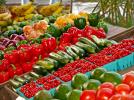Sunflower Project Operational Group: Improving the sustainability of sunflowers through conservation agriculture PHASE 2
- Type Operational group
- Execution 2022 -2024
- Assigned Budget 228.922,22 €
- Scope Autonómico
- Autonomous community Andalucía
- Main source of financing CAP 2014-2020
- Project website https://eu-cap-network.ec.europa.eu/projects/improving-sunflower-sustainability…
Within the framework of the European Innovation Partnership (EIP) grants to operational groups in agricultural productivity and sustainability under the Andalusian Rural Development Program 2014-2020, the operational group entitled Improving Sunflower Sustainability through Conservation Agriculture (GiraSoil Project) was launched.
1- Documentation phase. Current status of sunflower management to design improvement protocols.
2- Field phase. Machinery adaptations are developed and tested on the pilot farm and subsequently, together with other management adaptations, on the demonstration farms. Agronomic and environmental indicators are monitored (soil cover, emergence, yield, arthropod biodiversity, carbon sequestration).
3- Report preparation.
4- Dissemination, with transfer actions to farmers and technicians and preparation of informative material.
The project's objectives include:
- Improving crop emergence by adapting conservation agriculture machinery and methods (strip tillage, stubble sweepers, adapting seeders to very clayey soil conditions).
- The assessment of the economic, carbon, and energy balance to demonstrate both the economic and environmental viability of the crop.
Improved sunflower germination during direct sowing (a critical crop period), which, combined with lower management costs, will increase farmers' economic benefits. Improved use of machinery for sunflower seed management. This improved use results in greater sowing control (efficiency) and optimized inputs. The solutions found could benefit machinery manufacturers (possible technological improvements or improvements in the use of machinery).
Regarding climate change, lower CO2 emissions and a better energy balance from crop management are expected, due to lower emissions from the soil due to the degradation of organic matter and less use of machinery. Improved arthropod biodiversity and increased soil carbon sequestration by improving soil structure and increasing the amount of organic matter in the soil. Greater training for farmers and technicians, with more tools and knowledge available to address the consequences of climate change. This also increases the resilience of the system.
- Coordinator/entity name: Spanish Association for Conservation Agriculture. Living Soils
- Coordinator/entity email: overoz@agriculturadeconservacion.org
- ASAJA-Andalucía
- Antonio Tarazona S.L.U.
- ASAJA-Sevilla
- Instituto de Investigación y Formación Agraria y Pesquera (IFAPA)
- Syngenta España S.A.U.
- Universidad de Córdoba







